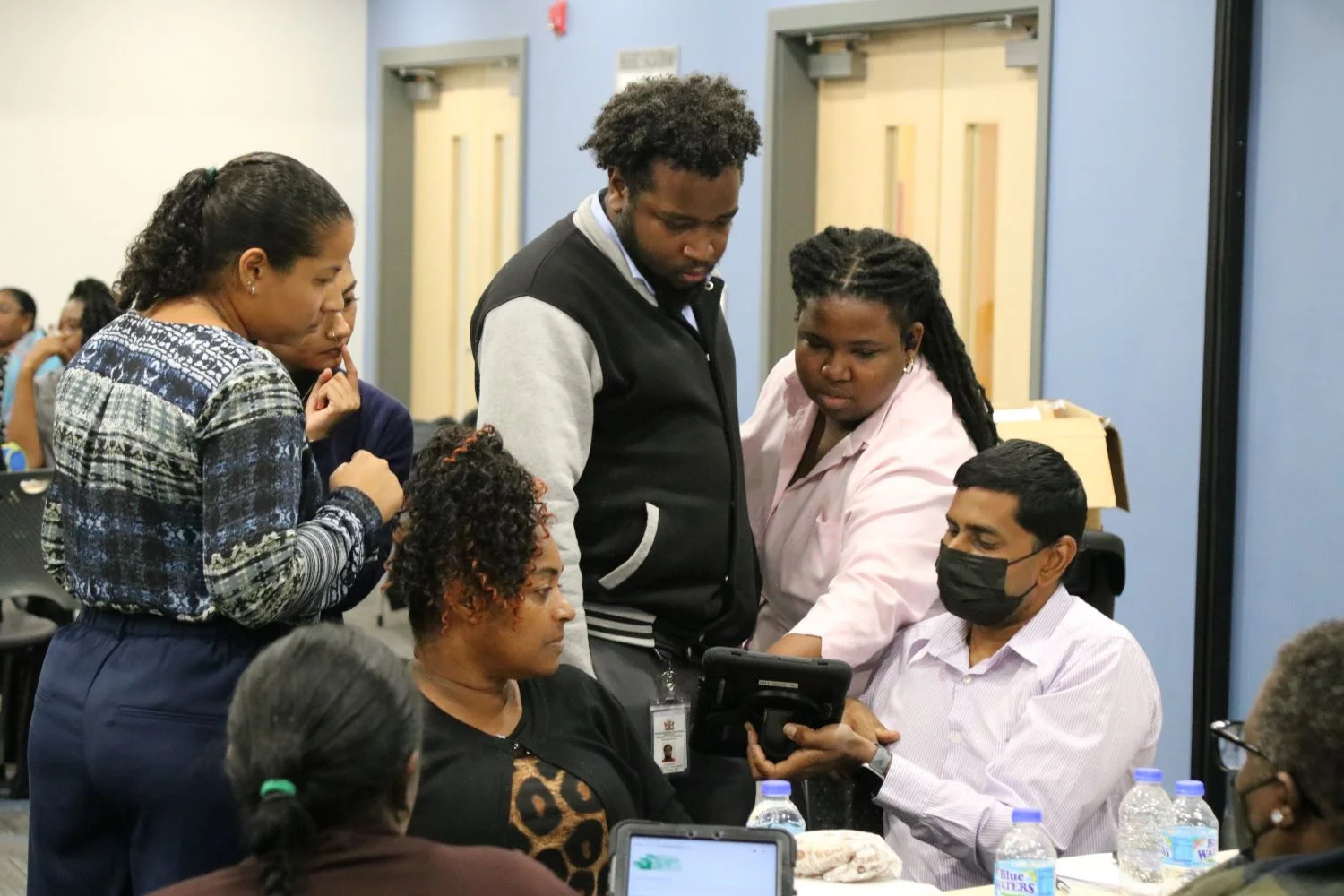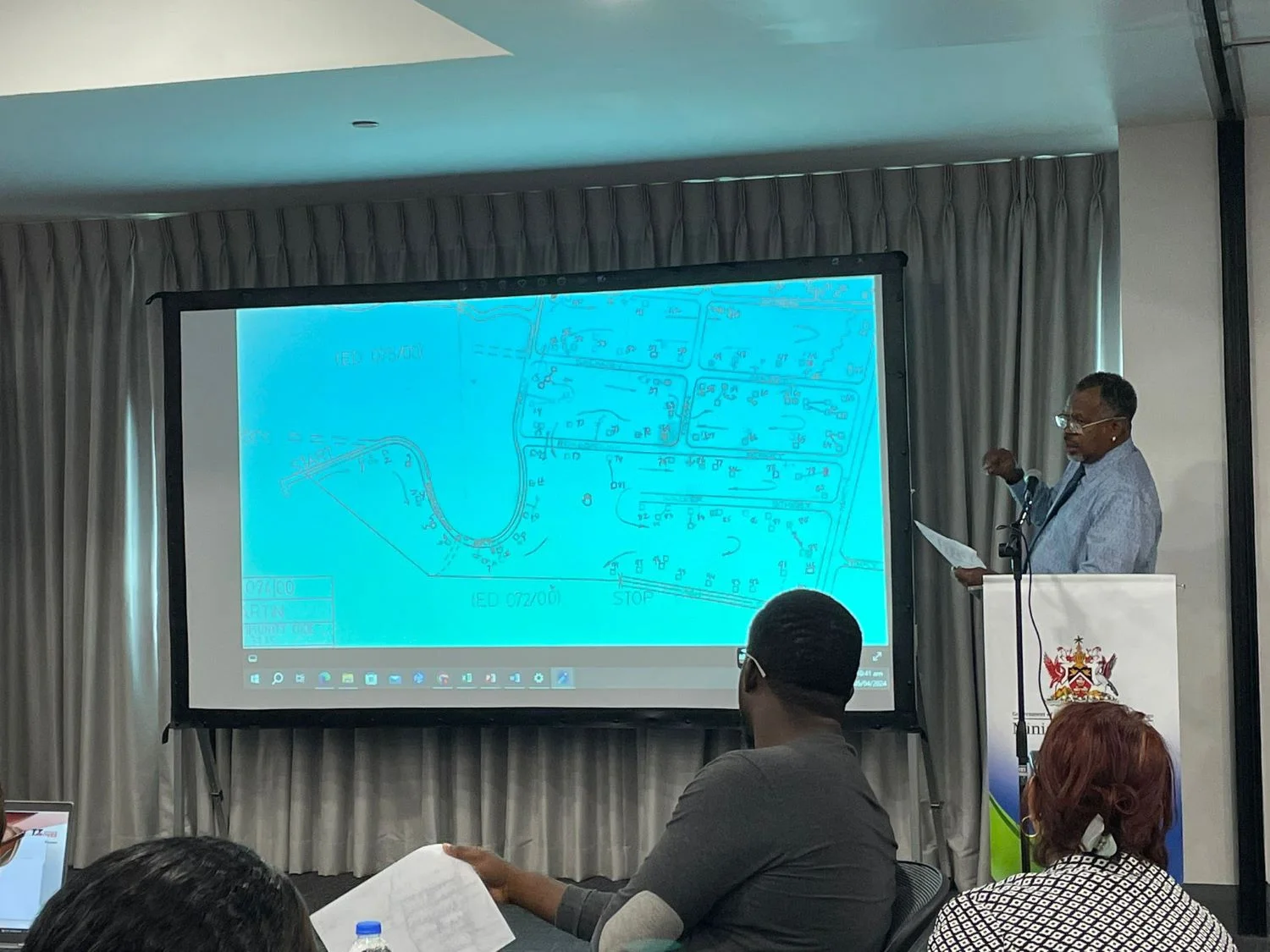PAN American Health Organization (PAHO)
Elimination of Cervical Cancer in Haiti: 10 Departments Now Equipped with Materials for Thermoablation of Precancerous Lesions
07 Jun 2024
PAN American Health Organization (PAHO) | 24 Apr 2024
Port of Spain, 5 April 2024 - The Ministry of Health of Trinidad and Tobago, with technical support from the Pan American Health Organization (PAHO) conducted a four-day comprehensive training session from April 2 to April 5, 2024, with the goal of preparing more than 70 interviewers and supervisors for their roles in the implementation of the STEPS survey. This is the second round, following the first STEPS survey implemented in 2011, which revealed areas of concern regarding NCD prevalences.
This survey, known as the STEPwise approach to NCD risk factor surveillance, has a wide range of purposes, including collecting data on NCDs and their risk factors, in addition to measuring access to services. The data produced by this survey supports the planning of health services, favors the monitoring and evaluation of public health policies, and promotes advocacy for NCD prevention policies in government and social spheres.
 Mr. Akini James, STEPS project coordinator of the Ministry of Health, spearheaded this training initiative together with Dolores Ondarsuhu, Technical Officer specialized in Population Surveys for Noncommunicable Diseases of the NCD Department of PAHO who provided technical support at the request of the Ministry of Health, in the process of preparation and training of interviewers and supervisors. Additionally, PAHO helped program the electronic questionnaire, which was then uploaded to electronic tablets that will be used in the field for the survey.
Mr. Akini James, STEPS project coordinator of the Ministry of Health, spearheaded this training initiative together with Dolores Ondarsuhu, Technical Officer specialized in Population Surveys for Noncommunicable Diseases of the NCD Department of PAHO who provided technical support at the request of the Ministry of Health, in the process of preparation and training of interviewers and supervisors. Additionally, PAHO helped program the electronic questionnaire, which was then uploaded to electronic tablets that will be used in the field for the survey.

The urgency of conducting this STEPS survey is highlighted by the prevalence of NCDs in Trinidad and Tobago. NCDs account for 62% of annual deaths in the country, and 45% of these deaths occur prematurely in people under 70 years of age.
The fieldwork training prepared experienced workers, several of whom had previous experience in Central Statistics Office household surveys, with standardized data collection procedures. The project was funded by the Inter-American Development Bank (IDB) and the Ministry of Health.

The training program covered various activities over four days. Information about NCDs and the STEPS protocol was presented on the first day. The second and third days covered mental health topics and refined the STEPS instruments and their technical setup, while day 4 included briefings on safety, roles and responsibilities, and contract signing for field workers.
The findings of the STEPS survey are of immense importance and will be widely disseminated to various stakeholders through traditional and digital media, newsletters, and community presentations. User-friendly versions will be distributed to improve awareness and participation.
Additionally, survey results will be shared with national and regional authorities to boost advocacy efforts for a coordinated response to the NCD epidemic.